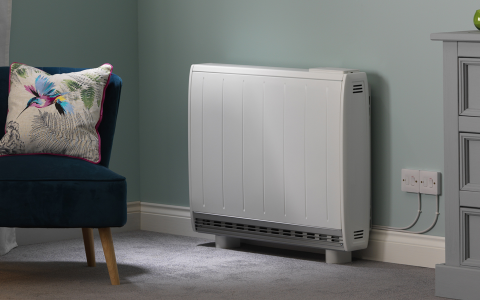Buying guide
Air Purifier
Five things to consider
Enjoying clean, pure air in your home is easy with an air purifier, but there’s a lot to think about when it comes to choosing which model is right for you. This handy guide will help you decide what features are most important to you, from filter technology to additional functionality.
Why do you need an Air Purifier?
Deciding why you need an air purifier will help narrow down the type of technologies that you will need. If someone in your home has allergies, then choose a purifier that features a HEPA filter, or if you’re looking for an easy way to neutralise cooking smells in your kitchen, a purifier with carbon filtration is ideal. For all-around use then look for a model that features a combination of filtration stages – the more stages of filtration, the cleaner the air will be.
What do Air Purifiers do?
Reduce pollen, allergens and odours
Reduce dust and pet dander
Circulates cleaner, fresher air
What Filter would work best?
Once you’ve decided where you are going to be using your air purifier, it’s important to consider the filter best suited for your room.You should also consider the ease of buying and installing replacement filters. We have ensured this process is as easy as possible, with replacement filters sold online and instructions on replacing the filter included in the product manual.
Activated carbon filters neutralises any odours and traps potentially harmful gasses and chemicals such as cigarette smoke. While HEPA filters are able to retain up to 99.97% of polluting particles such as pollen, bacteria, pet dander and spores, making them ideal for allergy sufferers. Ionisers work great with this technology as they cause the particles to clump up, being more easily captured by the HEPA filter, so for more efficient operation look for a product that has both.
What size do you need?
Different purifiers can be used for different sized rooms, so make sure that you pick a model that will best suit the room dimensions it will be used in. It is also worth considering whether you want your purifier to be standing on the floor or ‘table-top’ style, depending on where in the room you decide to use it. The weight and physical dimensions should also be thought about if you intend on moving the purifier around the home as needed.
What Features do you need?
Some air purifiers like the DXAPV3N Purifier feature Viro3 technology which produce negative ions that help combat positive ions that are prevalent in airborne viruses. It is also worth considering a purifier with differing day/night speed settings. Dimplex air purifiers offer this feature where the night setting allows for the air purifier to run at a very low fan speed to enable you to get a good nights sleep with minimal noise intrusion.

10 Point Plan: Green growth brings great opportunity for the electrical industry
Boris Johnson has launched his Ten Point Plan for a green industrial revolution. It outlines how committed the government is in making the UK a world leader in sustainability, and creates a number of positive opportunities for the electrical industry.

The CCC has suggested phasing out the installation of fossil fuel boilers by 2033 - but is this ambitious enough?
The Climate Change Committee recently released their proposed target for the Sixth Carbon Budget; suggesting a challenging 78% emissions reduction beyond 1990 levels. To achieve this, they have strongly recommended the introduction of a 2033 law banning the installation of fossil fuel boilers – but is this ambitious enough and what are the alternatives?

Flexibility or snap: How bending energy demand can reduce need for expensive investment
Ofgem’s consultation on their Forward Work Programme to build a fairer and greener energy system in Great Britain closes today. They have recommended demand shifting, storage, and interconnection as measures to “dampen the growth in peak demand” brought on by the electrification of heat, transport and services. Ofgem argue that reducing the peak electricity demand through a flexible energy system could save £5 billion per-annum, as there will be less need for investment in expensive network upgrades and plant generation.











